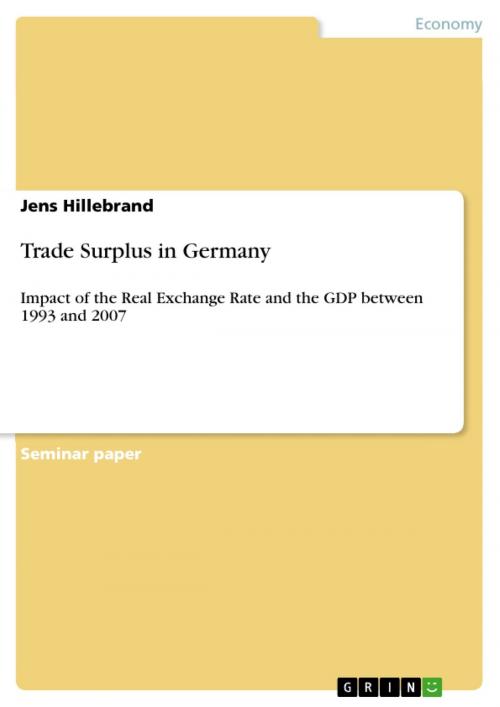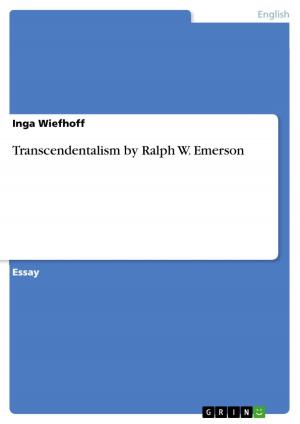Trade Surplus in Germany
Impact of the Real Exchange Rate and the GDP between 1993 and 2007
Business & Finance, Economics, Money & Monetary Policy| Author: | Jens Hillebrand | ISBN: | 9783638042338 |
| Publisher: | GRIN Publishing | Publication: | May 5, 2008 |
| Imprint: | GRIN Publishing | Language: | English |
| Author: | Jens Hillebrand |
| ISBN: | 9783638042338 |
| Publisher: | GRIN Publishing |
| Publication: | May 5, 2008 |
| Imprint: | GRIN Publishing |
| Language: | English |
Seminar paper from the year 2007 in the subject Economics - Monetary theory and policy, grade: 1,0, University of Auckland (Business School), course: Global Business Environment, 8 entries in the bibliography, language: English, abstract: This report analyses the impact of the real exchange rate two years beforehand and the GDP on Germany's trade surplus between the second quarter 1993 and the first quarter 2007. It is found that both factors had significant impact on Germany's trade surplus during the analysed period. Use of a piecewise linear regression technique, moreover, identifies changes in the development of Germany's trade surplus over time. A temporary downward shift in the consistent growth trend of Germany's trade surplus between the first quarter 1998 and the fourth quarter 2002 is seen to be due to changes in Germany's fiscal and monetary policy during the introduction phase of the Euro.
Seminar paper from the year 2007 in the subject Economics - Monetary theory and policy, grade: 1,0, University of Auckland (Business School), course: Global Business Environment, 8 entries in the bibliography, language: English, abstract: This report analyses the impact of the real exchange rate two years beforehand and the GDP on Germany's trade surplus between the second quarter 1993 and the first quarter 2007. It is found that both factors had significant impact on Germany's trade surplus during the analysed period. Use of a piecewise linear regression technique, moreover, identifies changes in the development of Germany's trade surplus over time. A temporary downward shift in the consistent growth trend of Germany's trade surplus between the first quarter 1998 and the fourth quarter 2002 is seen to be due to changes in Germany's fiscal and monetary policy during the introduction phase of the Euro.















